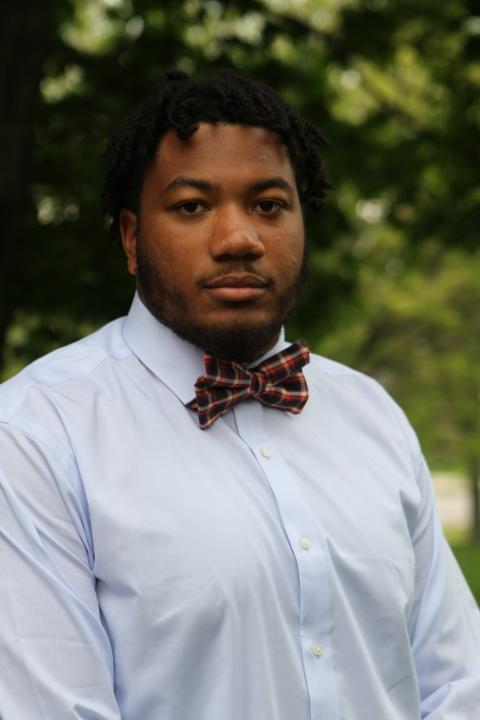
University of New Hampshire
McNair Scholar, 2019 & 2020
Major: Mechanical Engineering
2020 Mentor: Dr. Todd Gross, Department of Mechanical Engineering
2020 Research Title: Utilization of Computational Fluid Dynamics to Evaluate Strategies to Minimize the Lateral Mixing of Potentially Virus-Containing Aerosols from Stationary Individuals in Enclosed Spaces
Utilization of Computational Fluid Dynamics to Evaluate Strategies to Minimize the Lateral Mixing of Potentially Virus-Containing Aerosols from Stationary Individuals in Enclosed Spaces
The goal of this project is to utilize computational fluid dynamics (CFD) to evaluate the effectiveness of strategies to minimize lateral mixing of potentially virus-containing aerosols generated by stationary individuals in academic settings in the University of New Hampshire.Spherical droplets are released from the mouth and nose when humans cough, sneeze, breathe, talk, etc. These droplets have the ability to contain viral loads. While sneezes and coughs release larger droplets that have the potential to contain more viral load, breathing and talking droplets are smaller and do not weigh as much, giving them the ability to stay aloft in the air for a longer period of time. The aerosols created by smaller particles have the ability to be more harmful because without falling to the ground they can be inhaled by more people and travel farther distances. Computational Fluid Dynamics ANSYS-FLUENT software will be used to model the air flowing several classrooms and lecture halls.Then, the models will be modified to determine the effectiveness of the modifications on minimizing mixing of exhaled air from stationary individuals. We will consider passive strategies e.g. physical barriers between individuals and active strategies e.g. air curtains and snorkels connected to the exhaust vents.We hypothesize to adjust airflow in the room to reduce lateral mixing between individuals.
2019 Mentor: Dr. May-Win Thein, Department of Mechanical Engineering
2019 Research Title: Computerized Exercise Platform
Computerized Exercise Platform
Earth has a gravitational pull that the human body has adapted to, and is used to functioning against. Environment’s where the presence of gravity is obsolete are called microgravity environments. In a microgravity environment, muscles atrophy and bone mineral density decreases because the body has no gravitational force to oppose .A computerized, gravity independent, exercise platform is proposed to be developed as a countermeasure to the effects of microgravity. Resistance, plyometric training is an effective countermeasure to maintenance of the human body in a microgravity environment. For this research project a countermeasure platform that generates resistance as a function of feedback controls will be developed. The platform will be tested with 10 male subjects in their early 20’s. Acquiring appropriate muscular fatigue will be the benchmark for success in the device, as fatigue is an early stage sign of muscular hypertrophy. The device will be programmed to optimize a necessary load and fatigue, using repeated variations of stress, enabling muscles to rebuild stronger and stabilize the bone the muscles support, in regions of the body most affected by microgravity. The device will be tailor-programmed to address the needs of each specific user on an individual basis. Because muscular atrophy and loss of bone mineral density can be the result of any generic disability and/or disease (and not just as a result of a microgravity environment) the broader impacts of such a space efficient product are wide, and can be employed on Earth.
